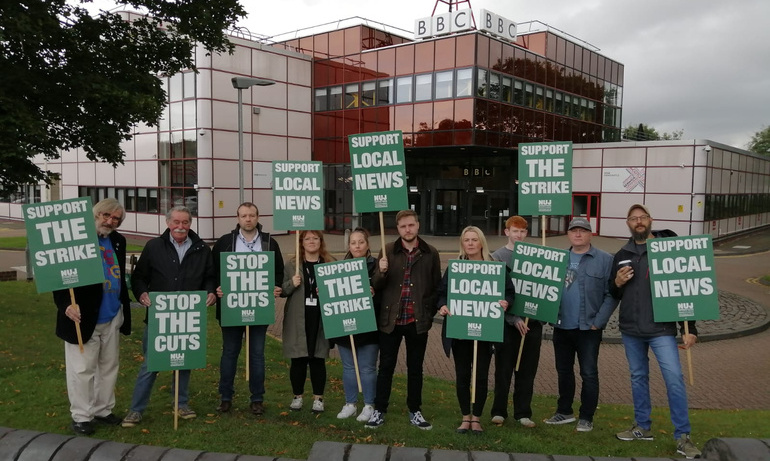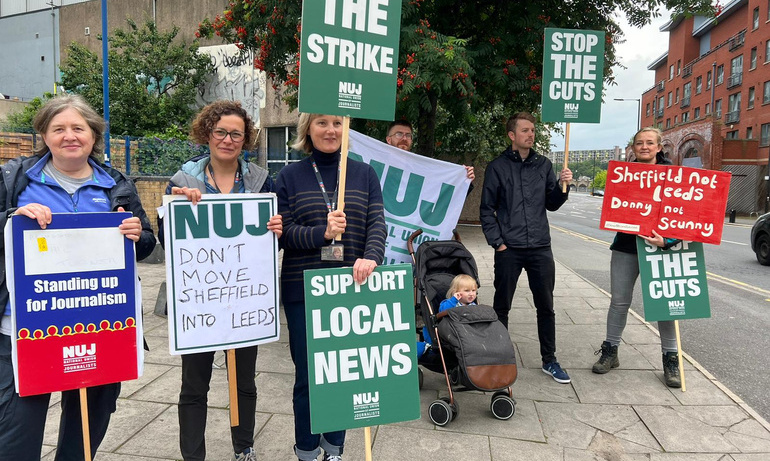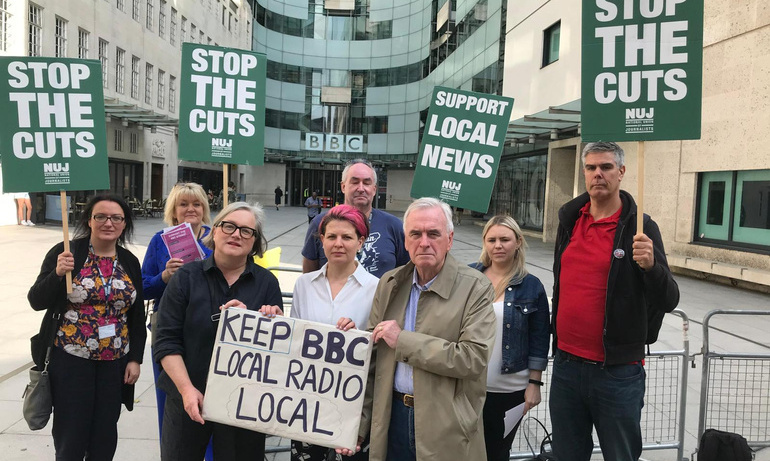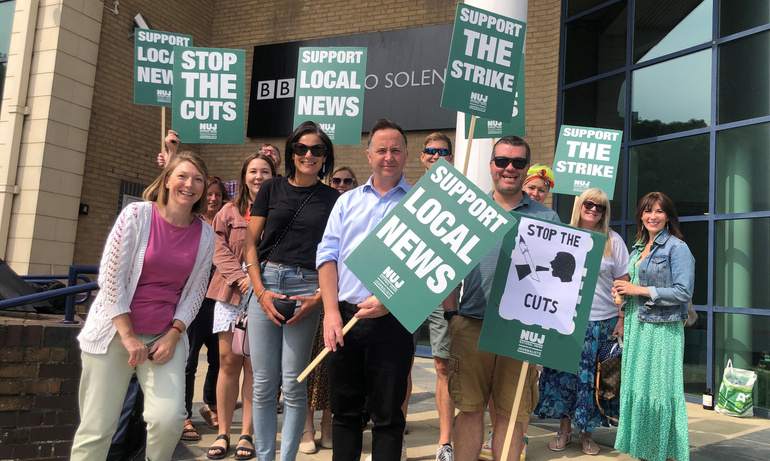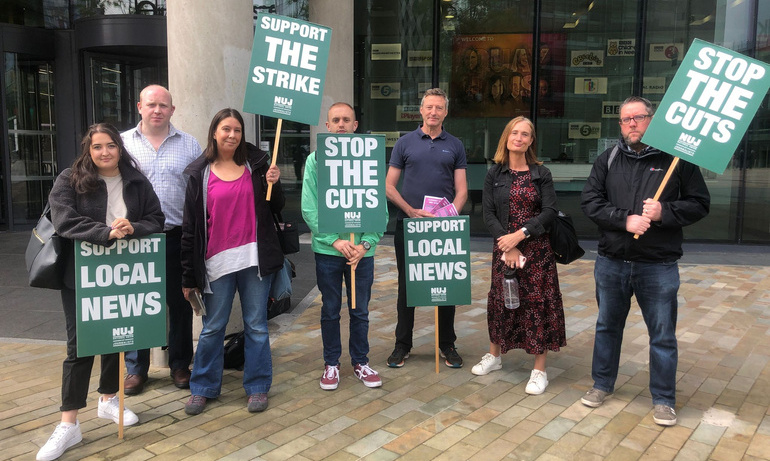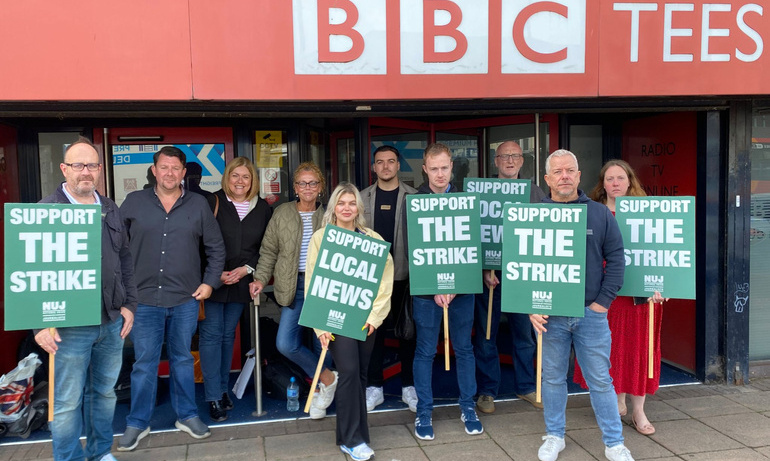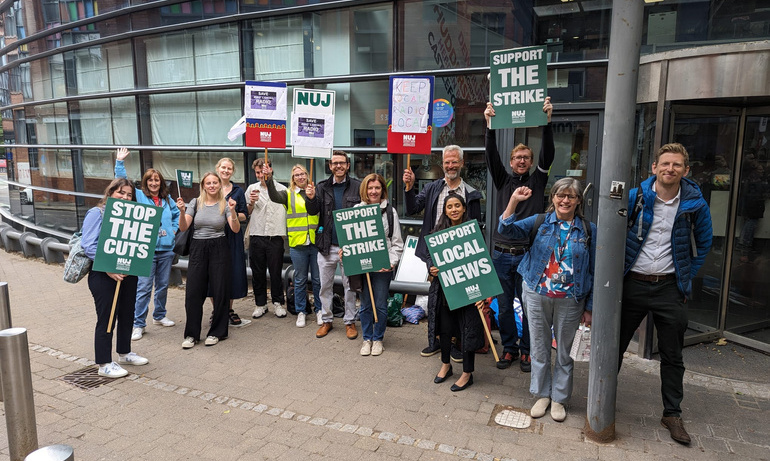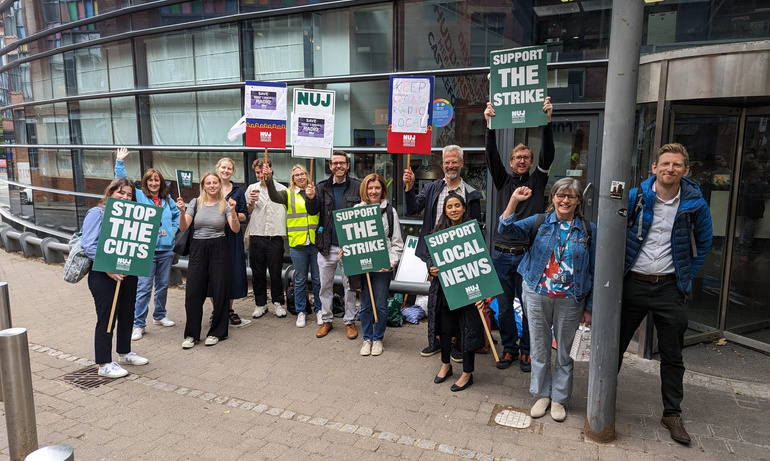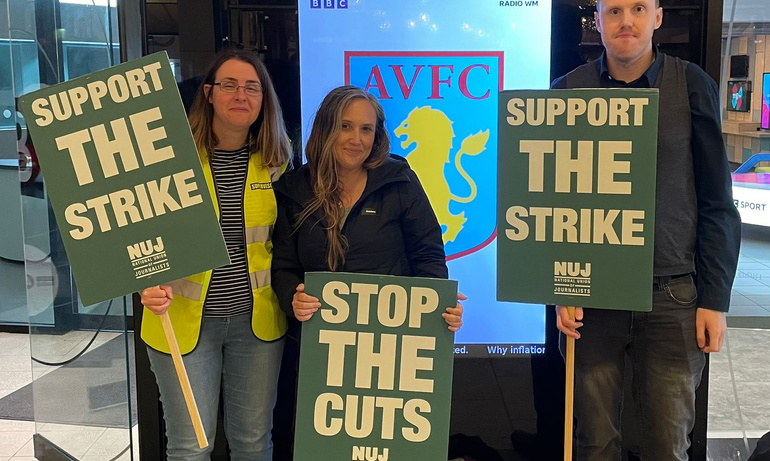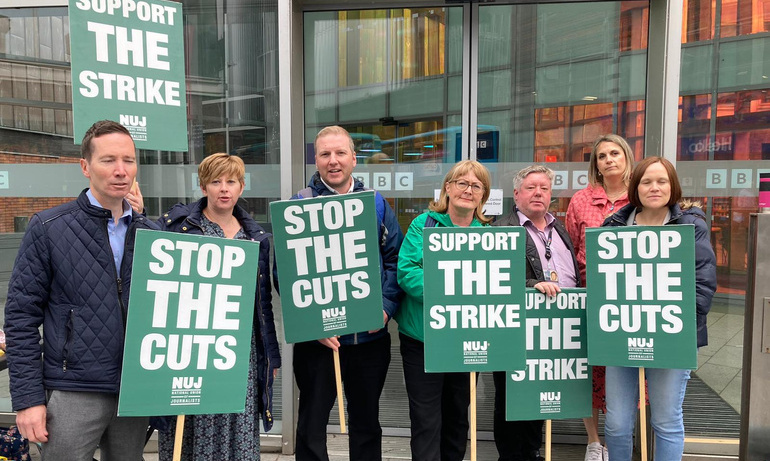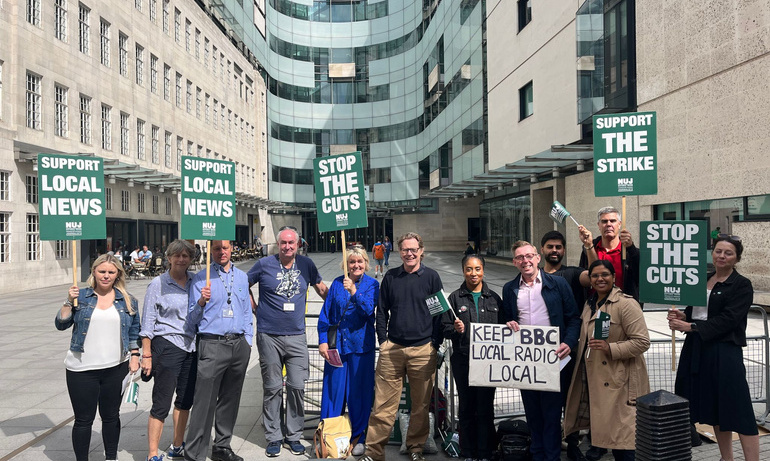“Your local news may be affected by industrial action…”
BBC local radio listeners had a taste of the future , as strikes across the network in England resulted in the reduced service they can expect under the corporation’s upcoming plans.
NUJ members left their studios at 11am on Thursday for the 24-hour strike.
Journalists working on regional TV added to the disruption, with unfamiliar faces suddenly appearing on screens, or stand-ins doing double shifts, with evening news bulletins being taken off air and elsewhere sharing of news from other regions. The lunchtime bulletins were off air in seven of the 13 BBC TV regions. At other times of the day, huge areas from Hull to the Isle of Wight were sharing programmes and putting out repeats.
Likewise in London and across the south-east, viewers were getting the same fare. Virtually every region was hit by the action. The TV breakfast programmes were broadcast largely in three “super regions”: Bristol/Plymouth; Salford/Leeds/Newcastle/Hull; and Southampton/London/Tunbridge Wells
Local radio bulletins and breakfast shows were equally hit. BBC management was drafted in to fill some of the gaps, with the regional manager stepping in to present the 10 to 2pm show on BBC Sussex and Surrey.
Local online journalists were also on strike.
Outside TV and radio stations striking NUJ members chanted, sang and waved banners and placards. Dogs were a popular feature and at Radio Hull, the Beldon Haigh guitarist was playing the band’s protest song Need My Radio.
They all won great support – and plenty of honks from passing cars. Local MPs, including Alex Cunningham, Labour MP for Stockton North Sarah Champion, MP for Rotherham, John McDonell, secretary of the NUJ’s Parliamentary Group, and Manchester mayor Andy Burnham visited the picket lines. Kim Johnson, Labour MP for Liverpool, Riverside, explained why she was supporting the strike.
Most local and regional newspapers carried stories on the strike. The action took place as NHS consultants and rail workers were also striking.
Find out more about the NUJ's campaign and why the BBC must rethink its plans.

